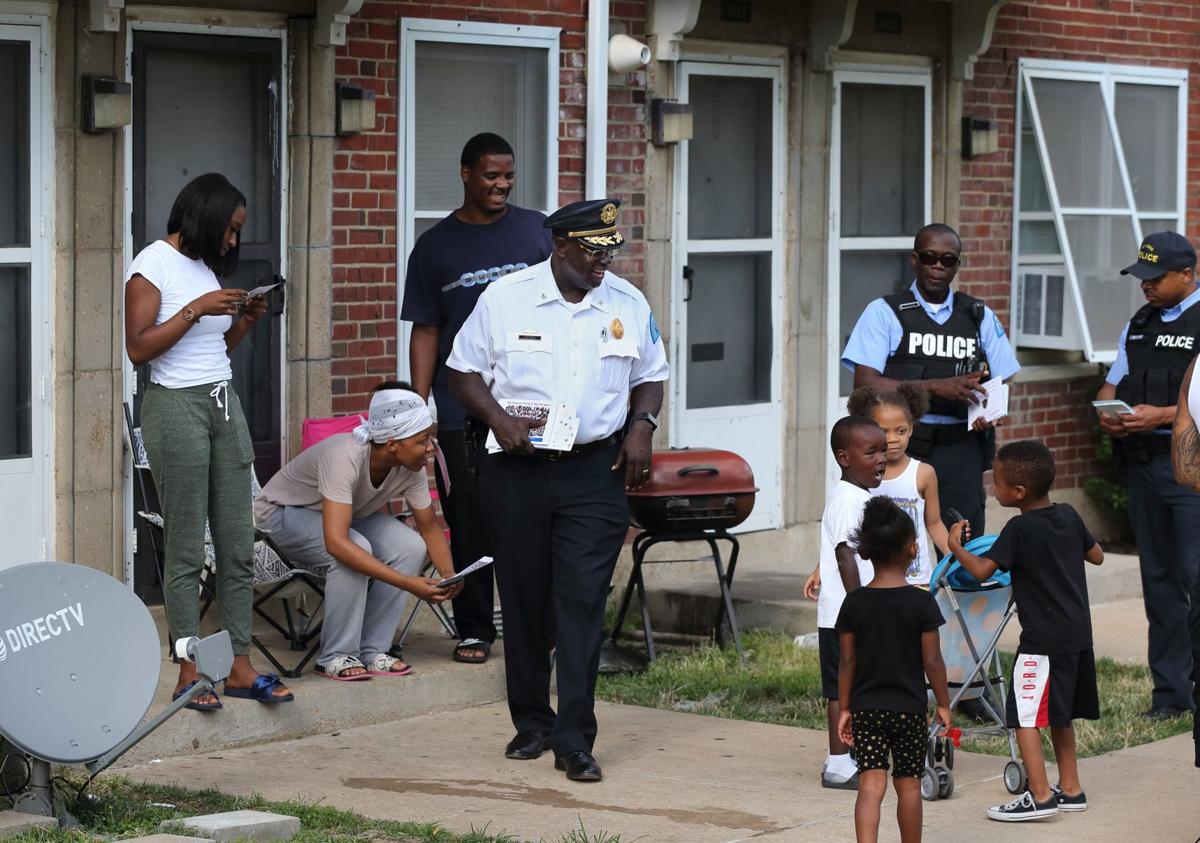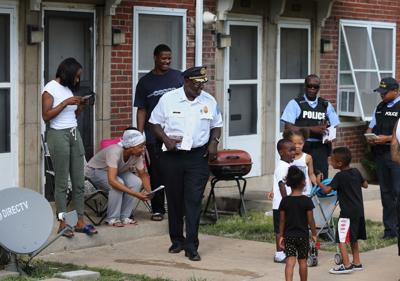About 100 days into his job as the top cop in the city of St. Louis, Chief John Hayden addressed a nagging problem in a city that sometimes struggles to solve violent crimes because it can’t get victims and witnesses to cooperate.
“If we expect the community to cooperate with us, they have to be comfortable around us,” . “They have to trust us.”
To help improve the environment for witness cooperation, Hayden has taken to the streets, driving his mobile command vehicle to some of the city’s most crime-ridden neighborhoods, walking house-to-house with some of his fellow officers, making connections.
He doesn’t need to drive far to get to one of the areas that could benefit from that message.
It’s inside police headquarters.
People are also reading…
Last month, amid into the police department, one of Hayden’s detectives sent an email that could put a damper on officers’ appetite to cooperate with the FBI or the Justice Department.
“I wanted to take a moment to remind all of you that the SLPOA has attorneys’ on staff to keep you and other members of this department out of Prison,” wrote Detective Joseph Mader on July 26. The email was sent to the entire third district. “If anyone from this department or an Outside department contact you to answer questions regarding any criminal matter involving you or one of our other members please CALL the SLPOA legal division.”
Mader is the St. Louis Police Officers Association Division 3 representative. The email was obtained by the Post-Dispatch through a Sunshine Law request.
Shown the email by the Post-Dispatch, Hayden was critical of the message it sent his officers.
“The fact that the author felt it important to remind the recipients that there were attorneys available ‘to keep you and other members of this department out of Prison’ would imply that the author was aware of or at least concerned about behavior of the recipients, which could warrant incarceration,” Hayden said in a statement. “This notion is inconsistent with the solemn oath that we take and the code of conduct to which we adhere.”
The FBI is known to be investigating on the night of Sept. 15. That was one of the nights of protests after former police officer Jason Stockley was found not guilty in the shooting death of Anthony Lamar Smith. That night, police in riot gear closed in around protesters, reporters and bystanders at Tucker Boulevard and Washington Avenue, taking dozens of people to the ground and spraying them with pepper spray.
An undercover black police officer was also caught in the mayhem and injured, apparently at the hands of other police officers. Several police officers reported injuries that night as a result of objects allegedly thrown by protesters.
Several lawsuits alleging civil rights violations have been filed related to the events of that evening and U.S. Attorney Jeffrey B. Jensen has vowed a “fair and thorough” investigation.
Jeff Roorda, spokesman for the , defended Mader’s email.
“It is completely appropriate to remind them of the potential consequences of not availing themselves of union legal representation and the severity of those consequences,” Roorda said. “Perhaps talking about officers going to ‘prison’ is a bit hyperbolic but isn’t that a real potential consequence of going without legal counsel?”
Roorda compared Mader’s email to a police officer reading a suspect his or her Miranda rights before placing them under arrest: “These are warnings that are meant to get people’s attention. That’s all Joe was doing.”
That’s not how Anthony Gray sees it.
Gray is an attorney who represents police officers in the department’s other association, the Ethical Society of Police. He also represented Smith’s mother in a civil lawsuit against the city. Gray agrees that officers deserve the same legal protections that other witnesses or suspects do, but he, like Hayden, believes Mader’s email sends the wrong message.
“It’s hypocritical for members of law enforcement to take the position that we will not share information with other law enforcement when we are constantly urging the public to share information with us,” Gray said. “That’s really not the message that we want to send the community.”
Gray points out that the president of the Ethical Society, Sgt. Heather Taylor, sent out a message to the police department around the same time Mader did. It, too, offered legal counsel if a member wanted it. But the note had an entirely different tone.
“If an outside police agency contacts you about a criminal investigation the facts of their investigation are most likely already known,” Taylor wrote. “Furthermore, we’re sworn law enforcement professionals and we’ve all taken an oath to be professional and truthful.”
Hayden hopes disclosure of the email doesn’t diminish his organization’s efforts in the community.
“Our department works hard to establish and maintain public trust,” he said. “I pray that the author’s email does not serve as a setback to the strides the department has made toward our goal of building trust within the community.”

















